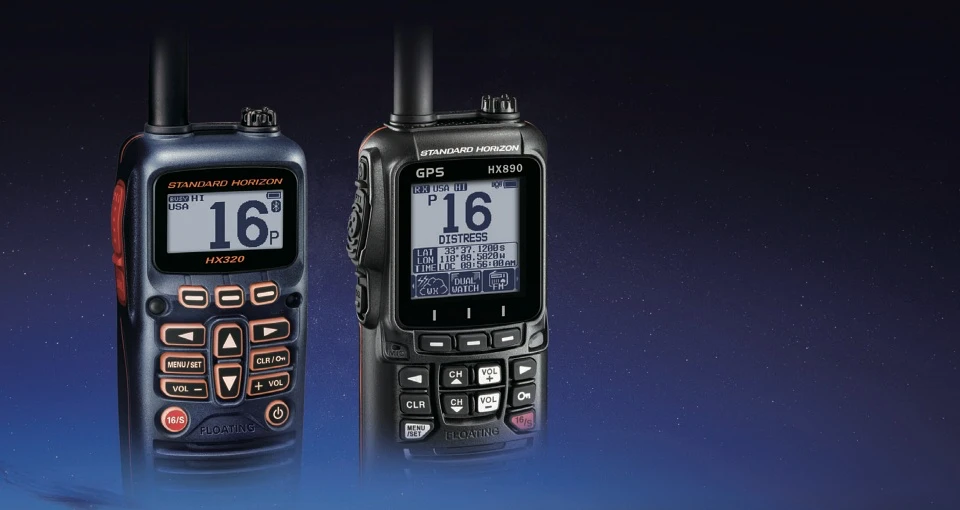
I Love Radio
I think I was 8 years or so when I started tinkering with radios. I would build transistor-based radio receivers and when I built a truly portable walkie-talkie, me and my best friend would spend hours talking over it. Radio is probably one of the greatest inventions of humanity. Why? Because radio has saved uncountable number of lives and has largely shaped the course of our history (especially during the WWII).
Safety is the Key
I’m a software engineer with a primary focus on cyber security. As such, I’m obsessed with security. Unfortunately, people often neglect it because security is seen excessive, until the day it’s not enough. Don’t fall into this trap, ever.
Security is always excessive until it’s not enough. - Robbie Sinclair
When it comes to venturing out into the vast expanse of the open sea, safety and effective communication are paramount. Whether you’re a recreational boater or a professional mariner, having a reliable means of communication can make all the difference in ensuring a smooth and secure maritime experience.
Let’s delve into the world of marine radios, exploring their features, benefits, and their crucial role in enhancing safety and communication at sea.
The Basics of Marine Radios
Marine radios, also known as marine VHF radios, operate on Very High Frequency (VHF) bands, specifically allocated for maritime use. VHF frequencies are favored due to their ability to transmit over relatively long distances and their resistance to interference caused by obstacles or atmospheric conditions.
These radios are designed to withstand the harsh marine environment, providing a reliable means of communication on boats, ships, and other watercraft.
By their nature, marine radios are water resistant. However, not all models are floating. When getting a portable marine radio, make sure it’s a floating one not needing extra case. Most portable models also feature floating alerts. When the radio unit comes in touch with the water, it flashes. This is very useful during nights.
One important feature of marine radios and radios in general is squelch control. When you are on an open channel with no signal, you will hear the constant hiss of white noise. It’s very annoying. That’s when squelch control comes on rescue - it simply mutes it.
Marine Radios are all About Safety
Distress Calls: Marine radios serve as the primary tool for distress communication at sea. Channel 16, the international hailing and distress frequency, is monitored by coast guards and other vessels ready to respond to emergency situations. In times of distress, a marine radio allows boaters to quickly transmit their position, request assistance, and communicate crucial information that can save lives.
Digital Selective Calling (DSC): Many modern marine radios are equipped with DSC technology. DSC allows for the automatic transmission of distress alerts, making it easier for search and rescue teams to locate and assist vessels in distress.
Additionally, DSC enables selective calling to specific vessels or stations, enhancing communication efficiency and accuracy.
To use DSC, you need to obtain MMSI (Maritime Mobile Service Identity). MMSI is like your cell phone number but for your marine radio. Yes, it’s a little bit effort but totally worth it.
When buying a marine radio, make sure it comes with DSC. It’s a nice feature.
Communication and Coordination
Ship-to-Ship Communication: Marine radios facilitate seamless communication between vessels, enabling coordination during group outings, regattas, or emergencies. They allow boaters to exchange information, discuss navigational challenges, and coordinate activities, ensuring a safe and enjoyable experience on the water. Some radios even allow ship to aircraft communication, though such models are quite rare.
Ship-to-Shore Communication: Marine radios enable communication between vessels and shore-based stations, marinas, and emergency services. This is particularly useful for obtaining weather updates, seeking navigational assistance, or reporting emergencies when close to land.
Navigational Aid and Weather Updates
Navigational Safety: Marine radios can be used to communicate with other vessels in order to clarify right-of-way, avoid collisions, or exchange essential information about navigational hazards. This communication helps prevent accidents and ensures safe passage for all seafarers.
Weather Alerts: Many marine radios have dedicated weather channels that allow boaters to receive up-to-date weather forecasts, storm warnings, and other critical information. Staying informed about weather conditions is vital for making informed decisions and ensuring the safety of both crew and vessel.
Final Words
Marine radios are not just communication devices; they are lifelines on the water. Their significance in maritime safety and efficient communication cannot be overstated. Whether it’s transmitting distress calls during emergencies, coordinating activities among vessels, or staying informed about weather conditions, marine radios play a vital role in enhancing safety and communication at sea.